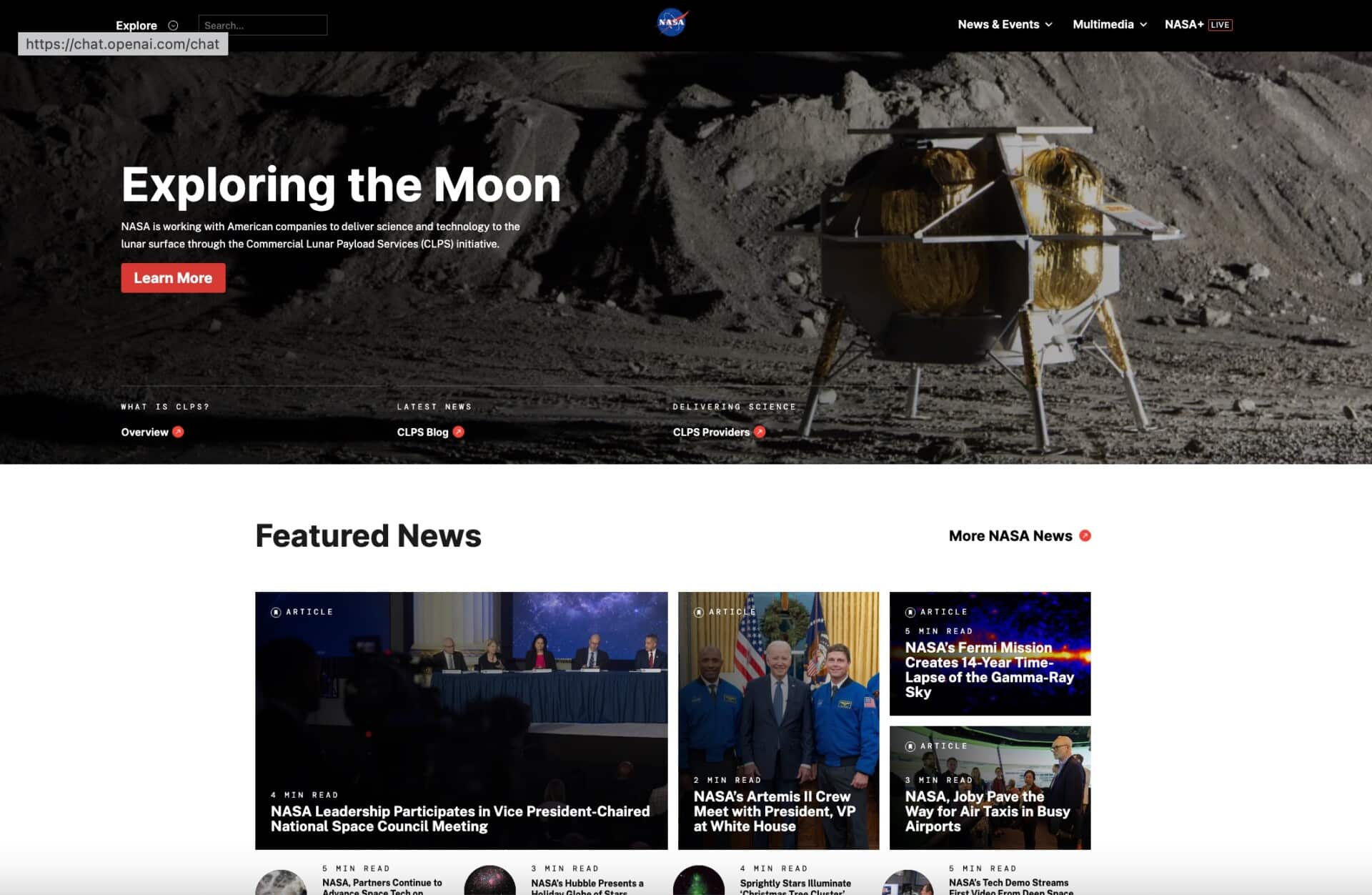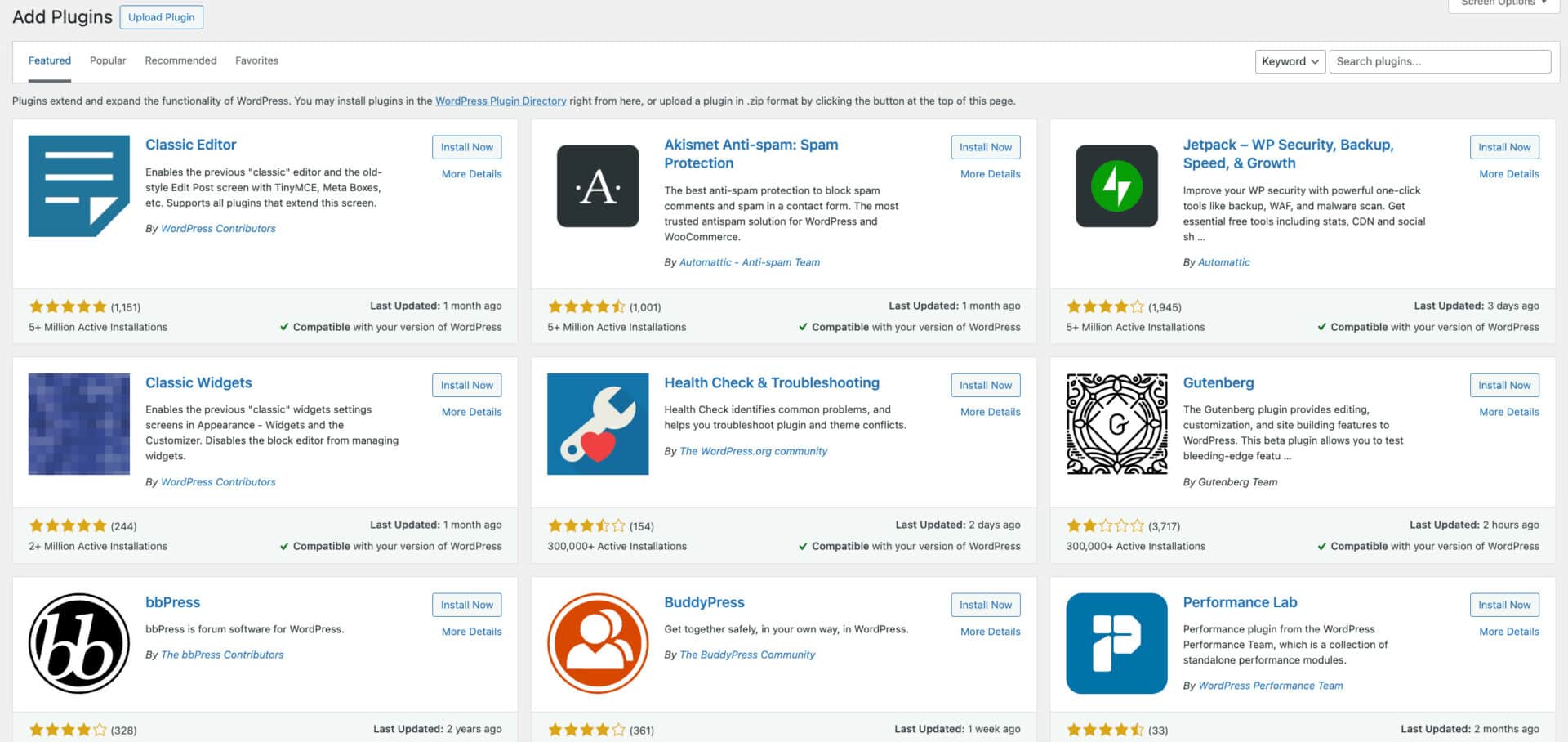Busting 5 Common Myths About Using WordPress in 2023
There’s no question WordPress continues to dominate the web landscape, running over 40% of all sites. But as a new website owner in 2023 trying to choose a platform, is it still your best bet? I will dig into the pros, cons, and everything in between.
Why New Site Owners Continue Choosing WordPress
It remains simple to use (when correctly set up, that is). The editor and dashboard are intuitive for non-technical folks to pick up quickly. No coding or special skills are required to build pages and publish blog posts.
The support ecosystem continues to grow. Between the over 500 WordCamps worldwide, Facebook groups, and countless YouTube tutorials, there is plenty of help when you inevitably get stuck.
Functionality is easily expandable. With over 55,000 plugins covering everything under the sun, you can add capabilities without touching code. Contact forms, memberships, interactive calculators – you name it, there’s likely a plugin.
WordPress focuses heavily on optimization for search engines through its permalink structure, built-in image alt text, XML sitemaps, and more. This helps with basic SEO needs, and this gives your site a boost in getting discovered online.
Top names continue to adopt it. Major media publications like Reuters, BBC America, and Time join the ranks of NASA, The New Yorker, and others running WordPress.
I’ve heard all the common myths and misconceptions that hold people back from building WordPress. As an experienced WordPress developer and implementer, I can debunk the top five!

Myth 1: You Need to Know How to Code
This myth could not be further from the truth! One of the most appealing benefits of using WordPress is that absolutely zero coding expertise is required. You do not need to know HTML, CSS, JavaScript, or any other programming languages to build your website.
Instead, WordPress provides incredibly user-friendly options that allow literally anyone to create great-looking pages. The block editor called Gutenberg is the prime example – it has drag-and-drop blocks to insert images, text, buttons, columns, and so much more onto pages using simple clicks.
Need to add a new page? Just click add a new page, or better yet, use the duplicate option to create a new page and start typing or make your changes. Want to delete an old blog post? Click the trash option to instantly remove it. Everything is clean and visibly clear.
You have far more creative ability than you realize.
While there is a short learning curve, it’s no different than learning Word or Pages on your computer. It’s so simple to make changes, update post blog articles, and add images and new pages entirely on your own.
So do not let fears about coding or lack of tech skills stop you from having a site that is easy to manage and update.
Myth 2: With So Many Plugins and Themes, It’s Too Confusing
It’s true that with over 55,000 plugins and 8,000+ themes available, decision paralysis often sets in. I see it firsthand all the time when working with new WordPress site owners. Evaluating what add-on functionality is essential versus nice-to-have and determining what design best represents their brand can feel downright overwhelming.
Many first-time or non-tech users often ask:
“How do I know which plugins to use?”
“Are there any free alternatives to paid plugins?”
“Will adding more plugins slow down my website?”
“What happens if I deactivate or delete a plugin?”
It’s extremely common to feel overwhelmed when looking at all available options.
As part of my setup service, I assist site owners in determining their ideal choice. This decision is based on various criteria, including the quality of its code, regular updates, the reputation of the developer, and more. These factors form the foundation to help you grow and evolve your website over time.
When it comes time to select a theme, I have a tried and true tool stack that we work with, ensuring that your website’s design aligns seamlessly with the goals and mission of the client.
Decisions can feel utterly overwhelming due to endless choices. My goal is always to educate clients to understand core from custom while preventing decision fatigue.

Myth 3: Updates Will Break My Site
It’s understandable how keeping your site updated can be a bit overwhelming. However, staying up-to-date with the latest versions of the WordPress core, plugins, and themes is absolutely critical for the security, speed, and functionality of your website.
New WordPress releases happen approximately every 4 months. The core software updates bring new features, security patches for vulnerabilities, bug fixes, and improvements to site performance. Staying current is a must.
Plugins also receive frequent upgrades, not only adding great new capabilities but also closing security loopholes. An outdated plugin is like leaving the digital door open to potential threats – needs to be addressed immediately via updating.
The same applies to themes. Developers maintain old themes much less over time, leading to performance lags. Newer themes incorporate speed optimization techniques and other regular updates.
I know it seems safer to use older designs and software unchanged, but in reality, falling behind puts the tremendous risk of being broken into, and dinged for being too slow, crashing from conflicts, and more.
The good news is updates don’t need to cripple your site like many assume! Start with a backup to easily reverse issues and implement a staging platform for doing a test run first.
With the right maintenance partner, you can have the best of both worlds – continuously upgraded technology PLUS confidence nothing will break.
Myth 4: WordPress is Not “Real” Business Websites
WordPress has evolved beyond its roots as merely a blogging platform. Today, major global corporations, universities, online retail stores, membership sites, and companies of every size rely on WordPress. Robust plugins support building literally any kind of professional, custom website you can dream up.
Plugins like WooCommerce empower store owners to sell products. Membership plugins make it possible to offer premium content tiers. Learning plugins allow you to create online learning centers. Tools like GiveWP enable non-profits and churches to fundraise through customizable donation forms far beyond basic PayPal links.
Additionally, other advanced functionality and custom-coded options allow the possibilities to be endless.
The best part of this approach is its scalability. You can start small, perhaps just a page or two, and then expand and enhance your website as your business evolves and your direction becomes clearer.
With the proper guidance around initial setup and choosing plugins that extend capabilities in the right direction for business goals, the days of WordPress just being for basic online journals are long gone.

Myth #5: WordPress is Too Expensive for Small Businesses on a Budget
I often hear from new small business owners with limited budgets that they assume WordPress must be expensive for them. They picture needing expensive developers, premium plugins and themes, and complex hosting.
However, one of the most appealing aspects of WordPress is its affordability and accessibility even for very small sites! With smart decisions, you can launch a capable website on WordPress a small initial investment.
Between low-cost managed hosting and thousands of free themes and plugins, the startup costs are manageable. Basic sites need less than 10 plugins total and quality free themes are often the best choice to start.
As your goals grow over time, premium plugins and optimized hosting can scale to suit your needs. But with the right guidance setting the foundation, WordPress can grow with a small business instead of limiting possibilities due to budget.
Unlocking the Door to an Enhanced Website
As you can see, many common myths and misconceptions about using WordPress simply don’t reflect reality in 2023. Its flexibility, capabilities, and accessibility continue pushing the boundaries of what small business owners can achieve online.
With a solid foundation tailored to your goals and regular maintenance care, your site will become an invaluable business-building asset for years to come.
Don’t settle for unimpressive alternatives or remain intimidated by the thought of migrating to WordPress. You CAN have a site that converts visitors into revenue.
Stop letting the myths of WordPress hold you back from having the site of your dreams.
How will you leverage its flexibility?
